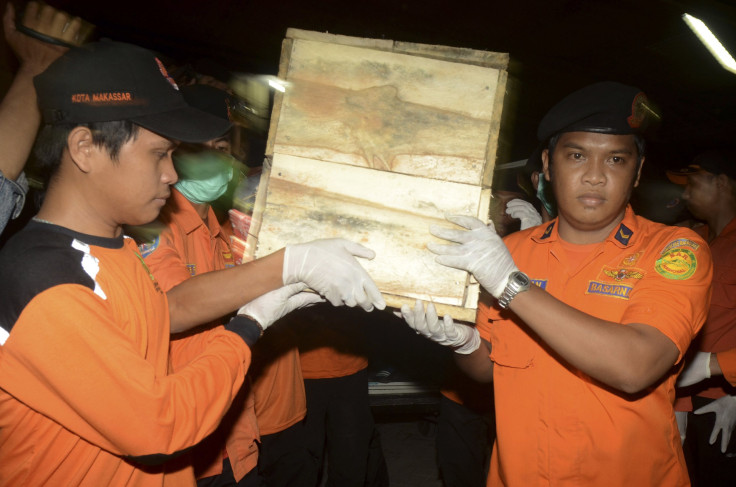AirAsia Flight 8501: Officials Refute Reports Of Pilot Leaving Seat, Cutting Power To Crucial Computers

AirAsia Flight 8501 crash investigators said Monday that they so far had no evidence that the captain left his seat before the plane lost control, or that pilots cut power to a crucial computer system, shortly before the plane crashed into the Java Sea. Investigators have been analyzing the aircraft's flight data recorders to determine the cause of the crash that killed all 162 people on board.
Two people familiar with the investigation had told Reuters last week that Captain Iriyanto left his seat to conduct an “unorthodox procedure” when his co-pilot apparently lost control of the plane. Sources had also claimed earlier, according to reports, that investigators were examining maintenance records of the plane’s automated control systems after suspecting that the captain decided to switch off the Flight Augmentation Computers (FAC).
"Up until today, there is no indication yet that the captain left his seat as reported by Reuters," Ertata Lananggalih, an investigator with the National Transportation Safety Committee (NTSC), told Reuters, referring to the report published on Saturday. "Up until today, there is no indication or evidence yet that the circuit breaker was pulled,” he added.
Bloomberg News had reported Friday, citing sources, that pilots had tried to reset the FAC during the flight, and then took an unusual decision to pull the circuit breaker that cut power to the computers. The decision, which sources said was taken by the captain, was reportedly being considered as a factor that may have led to the crash.
Last week, officials claimed that first officer Rémi-Emmanuel Plesel, who had significantly fewer flying hours than the more experienced Iriyanto, was at the controls when the jet made an unusually steep climb causing it to stall and crash. Plesel had just over 2,200 hours of flight experience, while the captain had logged more than 20,000 hours. NTSC investigators had also reportedly said that it was too early to determine if the crash was due to human error or some mechanical issue with the aircraft.
The Airbus A320-200 disappeared from radar screens during a flight from Surabaya, Indonesia, to Singapore, after the pilot requested for a change of course to avoid unfavorable weather conditions.
© Copyright IBTimes 2024. All rights reserved.











